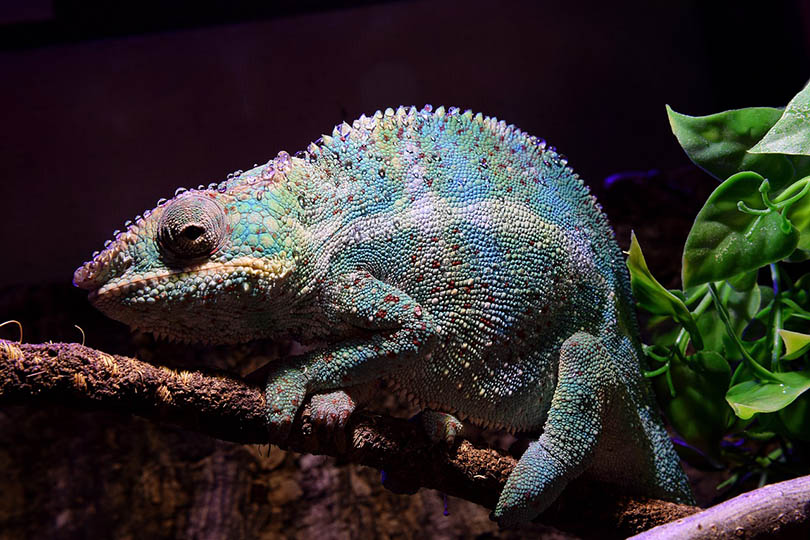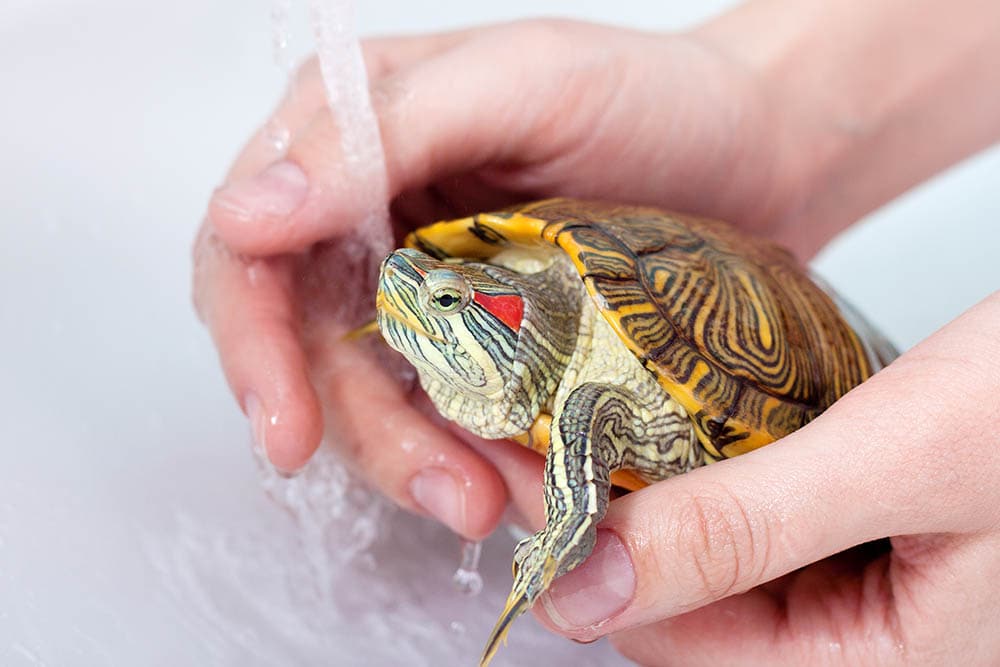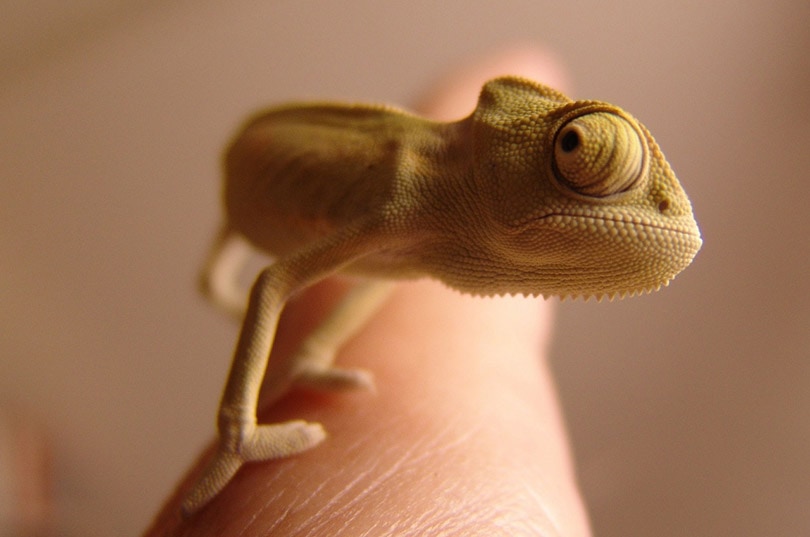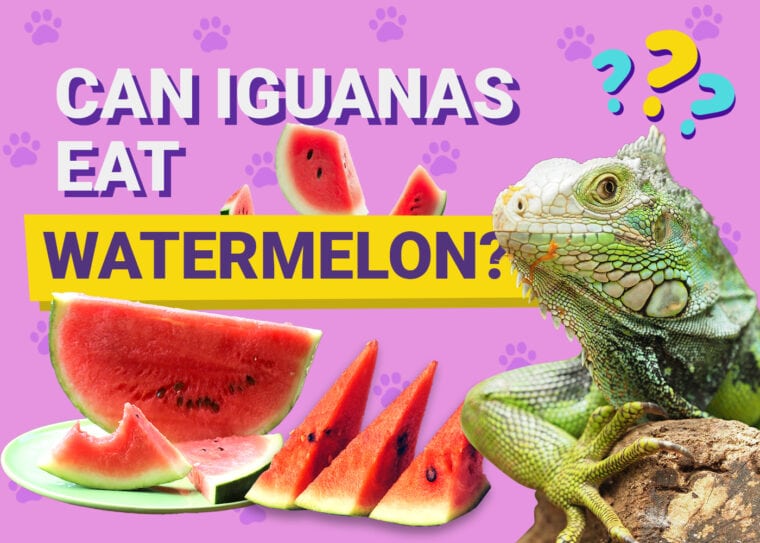
The iguana is a fascinating and intriguing animal that has captured the hearts of many reptile enthusiasts; indeed, it is now a very popular pet in many homes. Whether bright green or dark in color, its appearance makes the iguana an atypical and remarkable companion. But to keep him healthy and happy, one of the most important things to consider is his diet.
While the bulk of an iguana’s diet should consist mainly of leafy greens, vegetables, and fruits, should you give your iguana watermelon? The answer is yes, but only in small amounts and as an occasional treat, as it is a fruit high in sugar. Also, there are more exciting and nutritious fruits to feed your iguana, as you will find out as you read on.
Quick Overview

Before we delve deeper into the iguana diet, let’s take a look at its most important characteristics:
Iguana is a genus of saurian from the Iguanidae family. There are two species belonging to this genus:
What Do Iguanas Eat in the Wild?
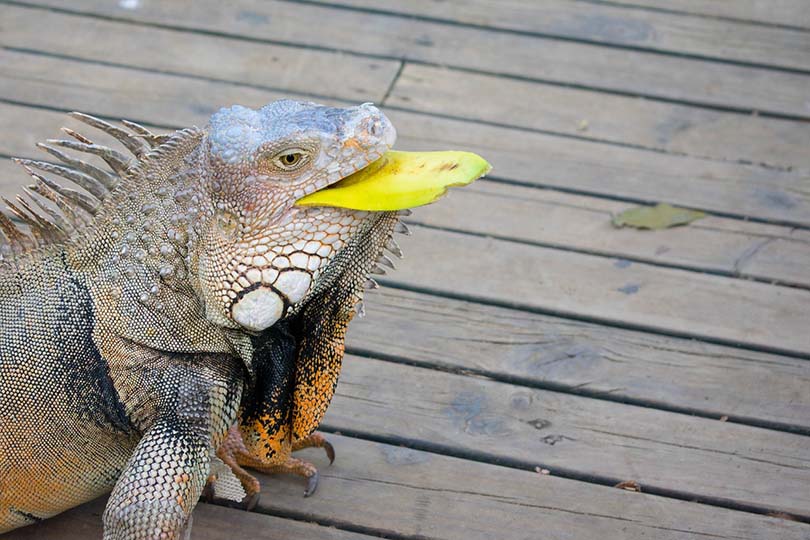
Primarily herbivores, iguanas are active during the day, feeding on leaves, flowers, and fruit.
However, if the young are omnivorous and eat both leaves and arthropods (insects and spiders), the adult is exclusively vegetarian; therefore, he will consume a wide variety of plants.
As the iguana almost always lives in trees, it mostly chooses leaves and epiphytic plants, which grow by attaching to tree branches, such as billbergias. The wild iguana is also fond of certain fruits and consumes flowers on occasion.
It does not use its legs to eat, but grabs food with its mouth, taking small portions that it shreds with its sharp teeth. However, its teeth do not allow it to chew, so it just tears the leaves to shreds, before absorbing them. As for the berries, it swallows them as they are.
What Should You Feed Your Pet Iguana?
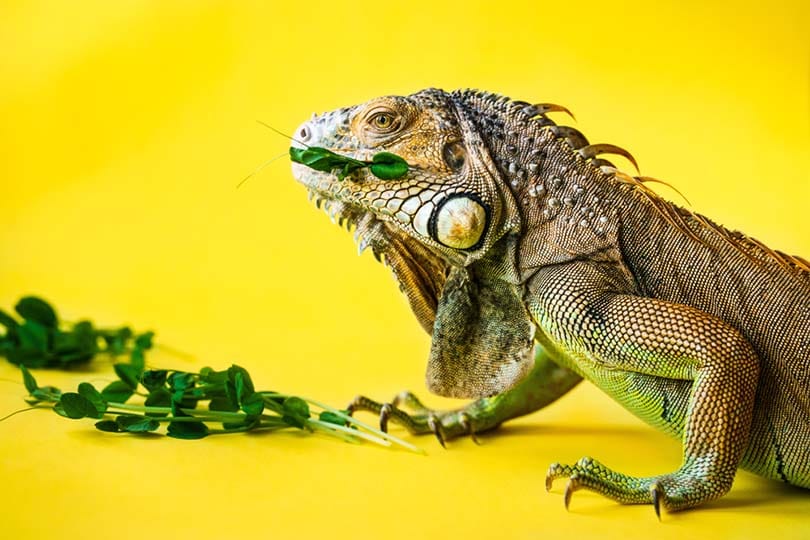
Contrary to what one might think, the iguana does not eat meat. Thus, in captivity, his diet should consist of leafy greens, vegetables, and some fruits. You can supplement his diet with commercial foods made specifically for this reptile. Also, don’t be afraid to give him enough nice salads and fresh vegetables; your iguana will not become obese with this balanced, high-fiber diet. However, do not give him too much fruit, especially those that are high in sugar, such as watermelon.
What Is the Nutritional Value of Watermelon?

Watermelons contain only 30 kcal per 100 g (approximately 1/2 cup). They are also composed of 92% water. In addition, the seeds and the flesh are an excellent source of:
However, if this nutritional content is pretty interesting if you are a human, is it also the case for an iguana? In other words, is it worth giving watermelon (or other fruit) to your pet reptile?
In small amounts and without pesticides, watermelon will not cause a problem for your iguana. However, fruits should make up only about 20% of your pet reptile’s diet, which is why you should consider watermelon as an occasional treat.
Besides, your little dragon will also enjoy other tastier and more nutrient-dense fruits, such as apricot, pineapple, cherry, fig, lychee, mango, blackberry, grape, nectarine, banana, orange, apple, pear, peach, strawberry, raspberry, or even kiwi.
What Foods Are Toxic to Iguanas?

Never feed your iguana human food that is not even good for you, such as French fries, cookies, pastries, chocolate, alcohol, caffeine, and candy. In addition, meat and animal proteins are to be avoided from his diet since he cannot digest them.
Bonus: Keeping the Green Iguana as a Pet
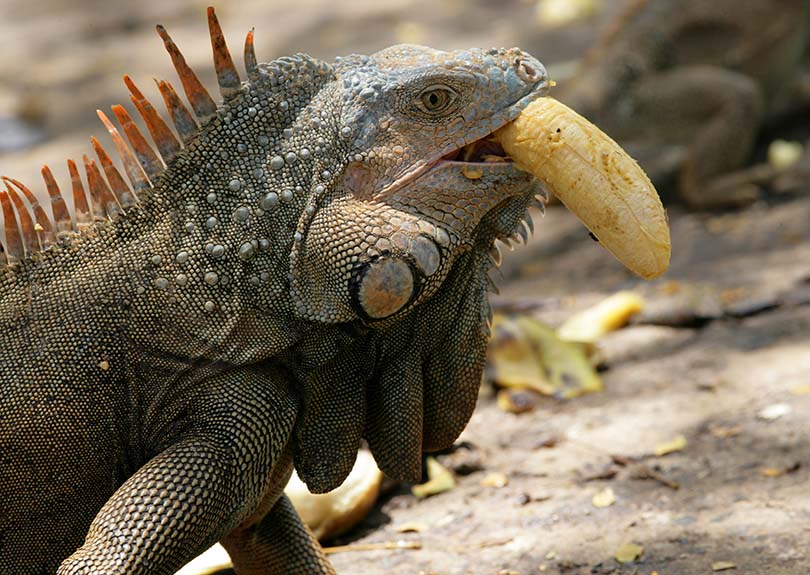
Green iguanas are only recommended for experienced reptile owners. There are three main reasons behind this warning:
In short, the art of keeping a reptile healthy (and alive!) comes from understanding its needs. And as you will understand, the green iguana is an advanced-level reptile. Growing up to 6 feet long for adult males, requiring not a cage but an entire room to live in, not to mention the challenges of feeding, temperature, humidity, and exposure to ultraviolet rays, the green iguana is not your best choice for getting started with reptiles.
Final Thoughts
An iguana doesn’t need to eat watermelon to be healthy, but occasional small pieces with the seeds removed won’t hurt him. But beyond their diet, iguanas depend on external heat sources to maintain their body temperature, which optimizes their digestion. Therefore, you will need to adhere to his optimum temperature range so that he can process the nutritious foods you offer him. Thus, by respecting these conditions, your iguana will have a better chance of living a longer and healthier life, and he will appreciate even more the piece of watermelon that you give him!


